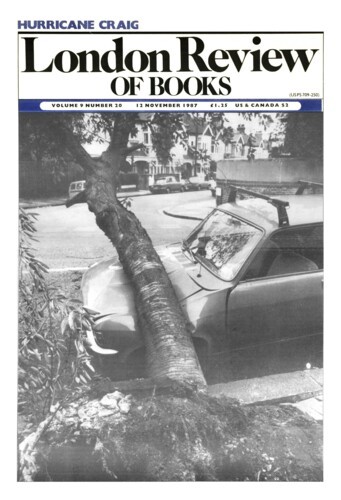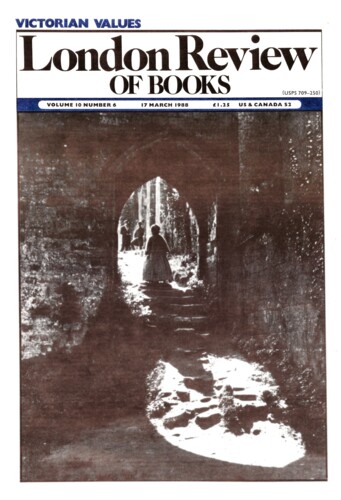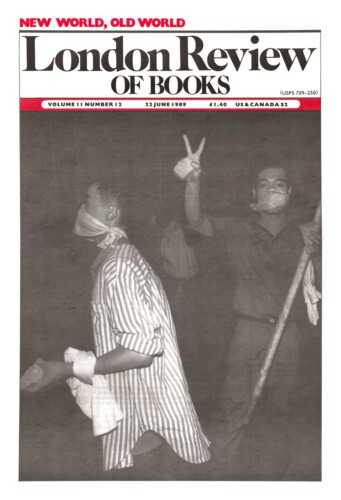Stuck in Chicago
Linda Colley, 12 November 1987
As I write this, the Liberal MP David Alton is about to introduce a Bill changing the upper time limit on legal abortions from 28 weeks to 18. If he succeeds, more women will be forced to give birth against their will, and more will be obliged to give birth to children already known to be severely handicapped. Whether he succeeds will be determined by a House of Commons where 13 out of every 16 MPs belong to the sex that does not get pregnant and does not, traditionally, take on the main responsibility of childcare. If the Bill becomes law and a woman appeals against it, she will be confronted by a male judge, for there are no women judges in the Court of Appeal or in the House of Lords. And if this same woman then seeks a termination on medical grounds, the person she will have to convince will almost certainly be male. Only 11 per cent of medical consultants in this country are women.





